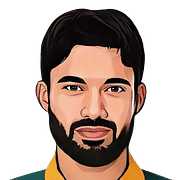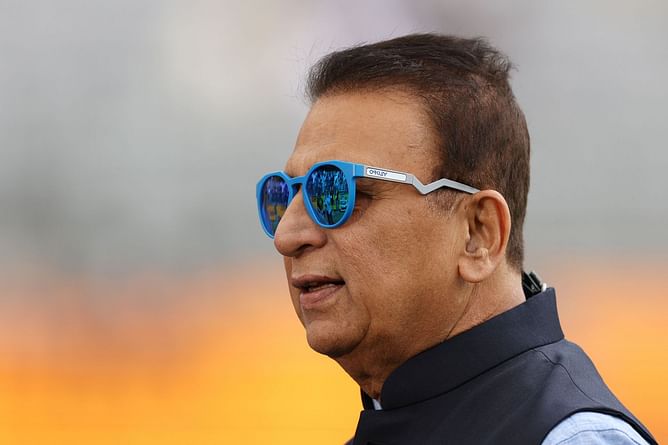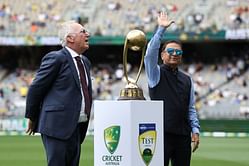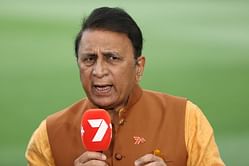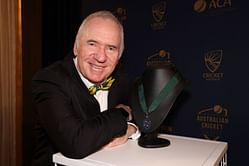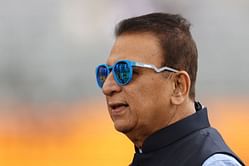Personal Information
| Full Name | Allan Robert Border |
| Date of Birth | July 27, 1955 |
| Age | 70 Years |
| Nationality | Australia |
| Height | 5 ft 9 in (1.75 m) |
| Role | Captain, Coach, Administrator, Slow left arm orthodox Bowler, Left-handed Batsman |
| Past Team(s) | |
| Family | John Border (Father), Sheila Border (Mother), Jane Hiscox (Spouse), Dene Border (Son) |
Popular Players
Allan Border: A Brief Biography
Allan Border Biography
Allan Robert Border is a former Australian cricketer, born on 27th July 1955, in New South Wales. He was a left-handed batsman, who was also a successful part-time left-arm orthodox spinner.
He holds the record for being the only player to have scored more than 150 runs in both the innings of a test match, as he made 150* and 153 against Pakistan at Lahore in 1979-80.
He still holds the record for playing the most consecutive Test matches to be played, as he played 153 matches.
Background
At the age of 16, Border made his début for Mosman in Sydney Grade Cricket primarily as a left-arm orthodox spinner and batted at number nine and went on to play the 1972–73 Combined High Schools team in the intrastate carnival under the guidance of former England international Barry Knight.
He scored more than 600 runs in 1975–76, and at the start of the following season, he made two consecutive centuries which got him the chance to represent New South Wales where he played till 1980, before moving to Queensland for the majority of his career.
Debut
Border made his Test debut in the third Ashes test in 1978/79 after Australia lost the first two Tests. He made his Test debut at the MCG, scoring 29 in the first innings before failing to trouble the scorers in the second innings.
After a good outing in the fourth test at Sydney, where he was the top-scorer in both innings with 60* and 45*, he failed to impress in the fifth test and was subsequently dropped for the sixth test.
Rise to Glory
After being dropped in the final Ashes test, he was recalled for the first Test against Pakistan at the MCG, when he batted at No. 3 and hit his maiden Test century as Australia crossed the 300-mark chasing 382 for victory by losing just 3 wickets but underwent a major collapse of seven wickets for five runs and lost by 71 runs.
After the first-round exit from the 1979 World Cup, Australia made a six-Test tour to India, and failed to win even a single match but Border was one of the only bright spots as he scored 521 runs at 43.42 in the Test series, including 162 in the first Test at Madras.
He was one of only three players to be retained for the 1st Test against West Indies at Brisbane in December 1979.
He scored 115 in the second test and went on to reach 1,000 Test runs in just 354 days, the fastest ever by an Australian at the time, and made more runs in his first year as a Test cricketer than anyone before.
Low Points
His appointment as captain affected his game adversely. Moreover, in April 1985, Border's captaincy prospects were weakened when plans were announced for a team of Australians to tour South Africa, seven players who played the 1985 Ashes tour, had signed for the Hughes-led "rebel" team and withdrew from the squad.
He refused to travel to Perth with the team after the decision was announced that the Vice-Captain Geoff Marsh was dropped for the fifth test against India in 1991–92.
Club Career
He represented New South Wales between 1976 to 1980 and moved to Queensland, where he stayed till his retirement from the game. He played for Gloucestershire in 1977 before moving to Essex in the late 1980s in domestic cricket structure of England and Wales.
Allan's Record in Numbers
He captained Australia for 93 Tests and played them all continuously, with Graeme Smith breaking both the records.
He also held the record for most Test Runs, before it was broken by Brian Lara which was broken by Brian Lara.
He also held the record for most Tests representing Australia, before it was broken by Steve Waugh.
He also held the record of most Test catches by a non-wicket-keeper until 1999.
Retirement
Border’s last series was Australia’s first against South Africa since the Proteas readmission to international cricket. The series was drawn 1-1, and Border passed the captaincy onto Mark Taylor, as the foundation was set for the era of Australian dominance of world cricket.





































































